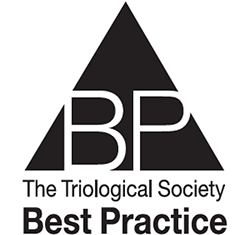 TRIO Best Practice articles are brief, structured reviews designed to provide the busy clinician with a handy outline and reference for day-to-day clinical decision making. The ENTtoday summaries below include the Background and Best Practice sections of the original article. To view the complete Laryngoscope articles free of charge, visit Laryngoscope.com.
TRIO Best Practice articles are brief, structured reviews designed to provide the busy clinician with a handy outline and reference for day-to-day clinical decision making. The ENTtoday summaries below include the Background and Best Practice sections of the original article. To view the complete Laryngoscope articles free of charge, visit Laryngoscope.com.
Explore This Issue
December 2023BACKGROUND
Electrocochleography (ECoG) is a method of measuring electrical potentials produced within the inner ear. ECoG has historically been used for measuring hearing thresholds and identifying endolymphatic hydrops in Ménière’s disease. More recently, the application of ECoG has expanded to monitor electrical potentials during cochlear implantation as an indirect measure of cochlear trauma. In this Best Practice, we examine if intraoperative ECoG improves residual hearing following cochlear implantation.
BEST PRACTICE
There is currently some inconsistency in findings regarding both the correlates of intraoperative ECoG and the efficacy of its implementation. Moreover, some heterogeneity exists in the acquisition and analysis of ECoG. However, the number and quality of observational studies correlating ECoG with objective measures such as pre- and postoperative pure tone average thresholds suggests that ECoG can provide useful information about the functional state of the inner ear during cochlear implant surgery and may predict hearing preservation.
More rigorous research with higher levels of evidence, such as randomized controlled trials, along with the development of a standardized approach to analyzing ECoG is needed to better characterize the effects of implementing intraoperative ECoG in cochlear implant surgery. Currently underway is a multicenter NIH U01 trial (NCT04707885) led by Oliver Adunka, MD, investigating the effects of intraoperative EcoG on residual hearing over 24 months after implantation.